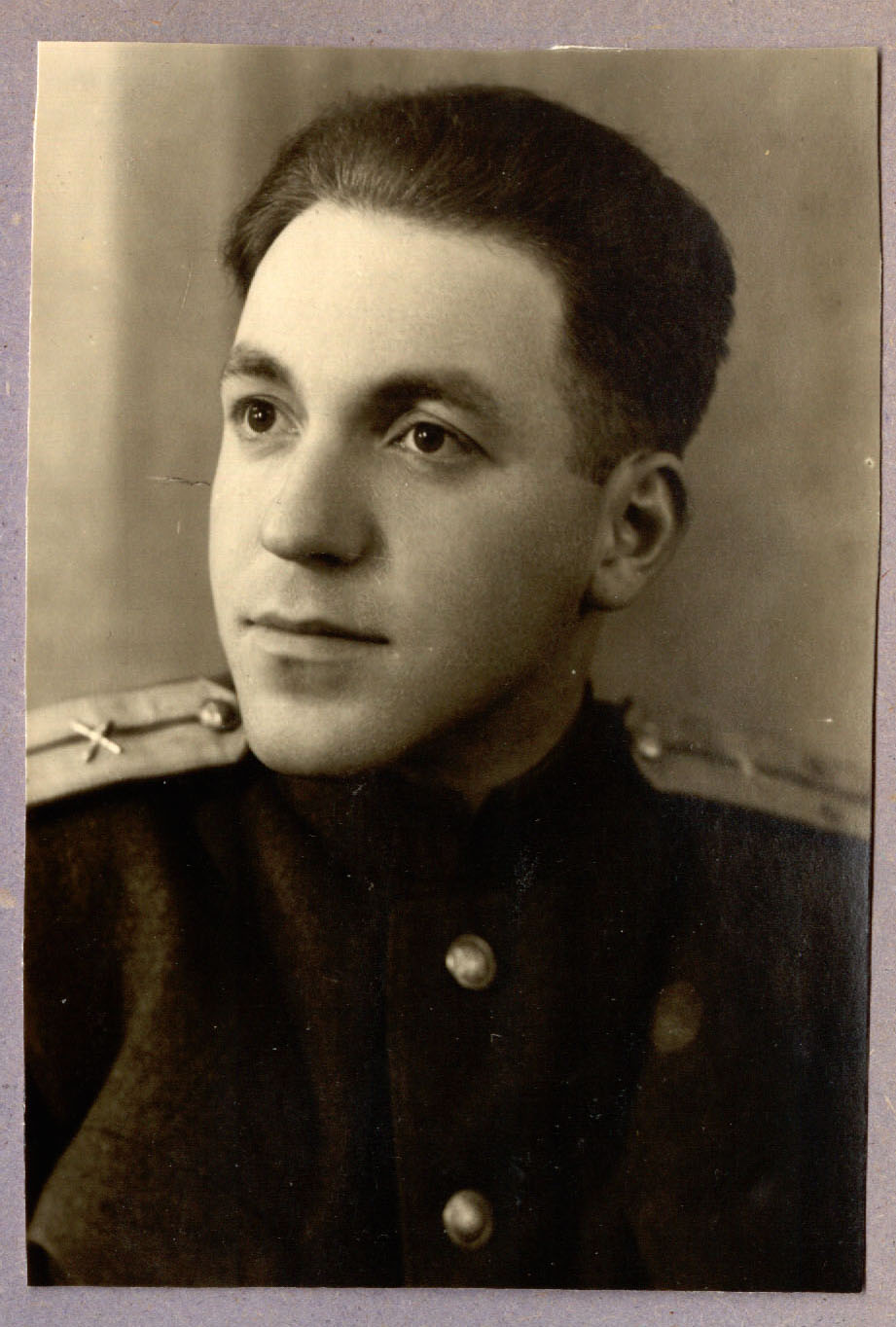Anatoly Altshuller, a renowned theater scholar, was born in 1922 in Petrograd (formerly known as St. Petersburg). Although this city lay outside the Jewish "Pale of Settlement" in pre-Revolutionary Russia, the family was allowed to reside there, thanks to Anatoly's great-grandfather, Nikolai (Nisan) Altshuller, who had served in the Tsarist army for twenty-five years (having been drafted as a cantonist at a young age). Anatoly's grandfather, Fedor (Geshel), worked as a typesetter, and later owned a printshop in St. Petersburg. He was able to give his sons a good education. The eldest, Yosif, graduated from the St. Petersburg Polytechnic Institute, while another son, Yakov (Anatoly’s father), received an engineering diploma from the University of Darmstadt (Germany). He was an avid chess player, and transferred this passion to his son. Anatoly's mother, Agnessa Leiboshits, was a diversely gifted person. Her father, Wulf Leiboshits, owned a copperware factory and five residential buildings in St. Petersburg, and he contributed extensively to the construction of the Choral Synagogue, where he had a seat reserved for him. Anatoly's older brother Georgiy became a design engineer who specialized in military submarines, while his sister Tamara had a degree in chemistry, and worked as a teacher.
Anatoly Altshuller enrolled in the Leningrad Theater Institute in 1939, and studied there for two years. In the first weeks after the outbreak of the Soviet-German War, he was called up and sent to an air defense school. Shortly thereafter, the school was evacuated to Omsk (Siberia). His family was supposed to evacuate to Pyatigorsk (in the North Caucasus), but, having been informed of Anatoly's location, they decided to head to Omsk instead. This decision saved the family from the Nazis. Anatoly’s father died in 1943. At that time, Anatoly was already a frontline fighter. Having been promoted to lieutenant (and, later, to senior lieutenant), he served in an anti-aircraft unit defending the locks on the Volga River. He then traveled westward with the advancing Red Army, now as the commander of an air defense battalion. Anatoly met V-E Day in Łódź, Poland.
In 1945, he was discharged from the army, and resumed his studies at the Theater Institute. He graduated from it in 1948. According to the recollections of his fellow students, Anatoly was a passionate and hardworking person. In 1967, he defended his doctoral thesis, and went on to become one of the most important scholars of the history of Russian theater. He taught at the Institute of Art Studies in Leningrad, serving as head of the department of source studies. He was also a professor at the Theater Institute, and many of his former students would recall him as a brilliant and helpful teacher. Altshuller authored more than 200 publications on the history of Russian and Soviet theater, the history of theater criticism, and the methodology of theater studies. Altshuller wrote and published six books (Five Stories about the Great Actors, The Theater of the Famed Masters, Chekhov among the Actors, and others). His main area of research was the history of the Alexandrinsky Drama Theater in St. Petersburg and its actors.
Apart from his professional activities, Altshuller (like his father before him) was an avid and very skillful chess player. His nephew recalls him saying: “I am willing to trade all my academic degrees for the title of Master of Sports in chess.” Altshuller participated in simultaneous play sessions conducted by famous chess players – such as Emmanuel Lasker, Jose Raul Capablanca, and Mikhail Botvinnik – and was personally acquainted with many of them.
Anatoly Altshuller died in 1996.
Related Resources
A passage from the memoirs of Anatoly Altshuller regarding the liberation of Poland.
For me, the war ended in February 1945. Even before its end, but after the liberation of Warsaw and Łódź, our 18th separate anti-aircraft machine gun battalion was redeployed to Łódź. We were quartered in a sumptuous mansion on Tylna Street. We were told that it used to belong to the industrialist Groman, the co-owner of the "Scheibler and Groman" textile factories. Groman himself was said to have been killed after the German occupation of Łódź.
One other remarkable fact about the mansion on Tylna Street: Under German rule, it had been taken over by a high-ranking officer, possibly even the commandant of Łódź himself. His name, as far as I can recall, was Xavier Knaup. He occupied several rooms in the mansion, and they bore the imprint of a typical large German family from that era. There were all sorts of Nazi symbols, women's toiletry, children's toys, new German books. The commandant fled from his Łódź residence in a great hurry, a few hours ahead of the arrival of Soviet troops in the city in January 1945. We could not in good conscience treat the possessions of Groman – a Polish citizen and an executed Jew – as trophies, even if he had been a capitalist. By contrast, requisitioning the property of the fascist Knaup was both a pleasure and a duty.
From: Neva Time newspaper; May 9, 1996.







